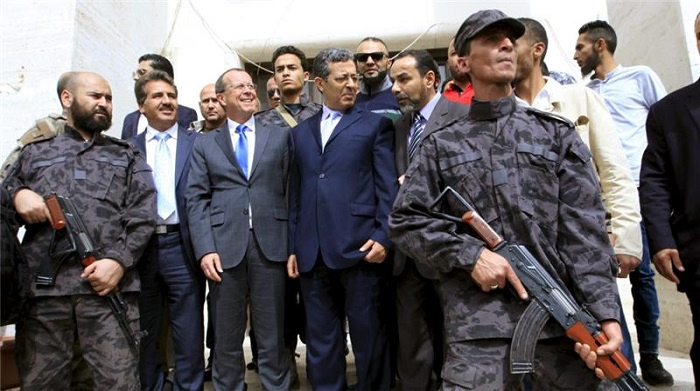Libya Transitioning from Brotherhood to Secular Government

The Tripoli government has declared two new measures that demonstrate its approach to the country’s political future; the government’s stepping down and backing of its successor. One is the result of participation in the talks over the past year and a half and the other is meant to bring privileges. The government based in Tripoli dubbed as the National Salvation government had religious roots and was in a way affiliated with the Muslim Brotherhood. It had ties with Turkey and Qatar due to its Brotherhood inclinations. The government worked and resisted against the secular government based in Tobruk that sought control over the whole country. The government in Tobruk, a small city on Libya’s eastern Mediterranean coast, was apparently based on a parliament chosen by the public, but supported by the West and General Khalifa Haftar, backed in turn by the United States in reality. The Tripoli government considered it a right for itself to establish a semi-Brotherhood government across Libya. It began to resist the formation of a secular government about two years ago. However, when the talks backed and mediated by the UN started nearly a year and a half ago, the Tripoli government took part. Thus, the recent move can be assessed as one in line with the outcome of the negotiations between the two governments. Even though the Tripoli government stressed its ideological demands and share of power, what has just happened is linked with the realization of a series of demands put on the table by the Tripoli side.
In the meantime, there are other factors involved in the Tripoli government’s recent approach. Tripoli accepted its dissolution after a delegation of the unity government arrived for talks in the city, despite the Tripoli government’s refusal to allow entry. One could say the recent events are the results of these significant talks between the unity and Tripoli governments, making concessions to each other. Here are some important points we should not forget:
- The Tripoli government is affiliated with the Brotherhood which is under global sanctions. The United Nations and the West not only imposed sanctions but also declined to recognize them as the Libyan government, denying them a seat in the assemblies. They constantly threatened Tripoli to press harder if it failed to accept their conditions and dissolve. Thus, the sanctions and threats coming from the West was one of the main reasons leading to the Tripoli government’s dissolution.
- A second reason was the countries backing them. Although the Tripoli government had seen a financial hiatus, it could gradually bridge the budget gap through oil sales. However, with respect to politics, it depended heavily on Qatar and Turkey and their gestures could transform Tripoli’s future. If Qatar and Turkey would demand that the Tripoli government move toward the unity government in their trans-regional negotiations, Tripoli had no other options. Qatar and Turkey demonstrated that they are open to deals in their support for the Brotherhood, clearly observed in Egypt, Sudan and Hamas as they withdrew their support.
- The present situation in Libya is tough. Now, ISIS has established itself in the central north, undertaken some moves and progressed toward Tripoli. The slaughters of ISIS are threatening Tripoli. ISIS’ settlement in north Libya means encroachment and dominance over the oil resources as the major source of the country’s revenues. If ISIS succeeds in gaining control over the oil, the government will not be able to make remarkable foreign currency revenues. ISIS’ advances toward Tripoli and its systematic occupation is a threat for the government based in Tripoli.
- There is a long list of reasons for the dissolution of the Tripoli government; some domestic and some foreign. One could say the role foreign factors play is more effective. Among all North African countries, Libya is the one the West has invested in because the country is one of the richest countries in possession of oil. The country’s Mediterranean coasts provide remarkable investment opportunities for the West in tourism and hotel businesses. The West seeks a government that could take operational levels in oil and tourism and prevent the independence of extremist groups that could turn into threats for the West. Thus, the West pursues the establishment of a real government in Libya more eagerly than Libyans do.
Last but not least, the dissolution of the Tripoli government cannot be evaluated without taking into account the half-secret-half-open presence of the US and the UK. In the past three months, military units from the two countries have used ISIS as a pretext to control directions and state building in Libya. Although Libya is in a state-building transition, there are no strong parties or organized groups with a clear manifesto. In fact, the people cannot play a significant role in the country’s state building due to population dispersion in Libya’s geography. Thus, the orientation of state building in Libya will depend on decisions made outside the borders.

